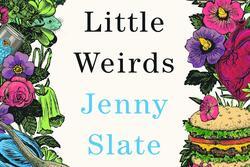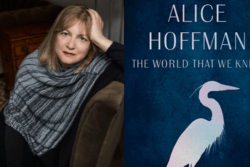Review: Tirzah Firestone's "Wounds into Wisdom"
Three generations of Esti’s family harbored a shameful secret from their last days in Tehran. Reuven spent his teenage years on the run in war-torn Europe after leaving Rumania. Tirzah’s father witnessed inhuman cruelty at the liberation of the Bergen-Belsen concentration camp. Rami’s 14-year-old daughter was murdered in Israel by a suicide bomber.
Traumas like these affect families for generations. In Wounds into Wisdom: Healing Intergenerational Jewish Trauma (Monkfish, 2019), psychotherapist and rabbi Tirzah Firestone inspires, teaches, and bears witness to how deeply the Jewish People carries our painful legacy, and offers us a way to heal from it. In her previous books such as With Roots in Heaven: One Woman’s Passionate Journey into the Heart of Her Faith, she offers a model for those seeking to align personal integrity with Jewish practice, and in The Receiving: Claiming Jewish Women’s Wisdom, she sets the record straight about our heritage of female religious leaders. In this new book, Firestone has once again powerfully harnessed Judaism’s robust tradition of interpretation and adaptation to give us an exquisite gift. The author constructs a framework using neuroscience and psychology to help us understand the part of our collective Jewish legacy that is exile, loss, and trauma. She paints an indelible picture of where this legacy has brought us to today, calling us to action in hopes that the Jewish people might achieve the healing that will enable us to lift up those around us.
Few people within the world’s Jewish communities today have ancestors who were not subject to ethnic persecution in their home countries. This goes for the children, grandchildren, and great-grandchildren of immigrants from all over the world, for second, third, and fourth generation Holocaust survivors, and for those living in Israel and Palestine, who experience existential threats on an ongoing basis.
Firestone’s research leads her to see how large-scale ethnic trauma corresponds to personal PTSD—the effects of which manifest in each successive generation. For those of us living relatively safe and comfortable lives in today’s society, the experiences of those who came before us—those who endured the destruction of family, the demands of unspeakable yet necessary compromises, the pitting of neighbor against neighbor—still linger. These unhealed wounds and buried truths shape the lives we lead today in ways we might not realize.
In Firestone’s words, “Jewish historical trauma is not completely undone. For many Jews, catastrophe remains an unconscious organizing principle, an internal representation of reality that is still passed from generation to generation, wittingly or not. Our ancestors’ past rears its head in the marketplace and in war rooms, on the battlefields, and at home with our children. Like stowaways who hide beneath the decks of our ship, painful memories go below the radar of our conscious minds yet whisper their secrets, drag and drain, compel and command us.”
Our positive traits such as resilience, resourcefulness, loyalty to tribe, and fierce determination also come out of this legacy, and these are traits to be cherished and celebrated. But according to Firestone, we can do better. She expertly and compassionately extends to the Jewish community the hope that we will be able to move beyond these techniques for survival and truly heal in deep and lasting ways. In the book’s first half, Firestone sets up the case, bringing in an array of key psychological research about how we all adapt to the inevitable shocks that life throws at us. We learn about growing evidence in the field of epigenetics that trauma alters “the expressions of our DNA and can create a kind of “biological memory” that is passed down from one generation to the next.
Firestone introduces readers to the work being done by Dr. Rachel Yehuda at New York City’s Mt. Sinai Medical Center, showing that the extreme stress experienced by Holocaust survivors is being transmitted to the younger generations of their families, and work by Dr. Yael Danieli and others who demonstrate that these effects are also present in survivors of social traumas throughout the world. The author offers stories of individuals and families who have gone through these experiences, as well as her own personal family history.
In the book’s second half, Firestone proposes seven “principles of Jewish cultural healing” that readers can apply to their own lives. These principles—facing the loss; harnessing the power of pain; finding new community; resisting the call to fear, blame, and dehumanize; disidentifying from victimhood; redefining Jewish chosenness; and taking action—are brought to life by the stories of individuals like Esti, an American whose parents’ harrowing escape from Iran required impossible choices they kept secret for decades; Avi, a child survivor of the Shoah who became an Israeli military hero; and Rami, whose daughter’s death in a suicide bombing became the foundation for his partnership with bereaved parents in other communities.
This book is meant to light the way for us. In healing ourselves, we will deepen our capacity to bring hope to others and reverse “the process of genocide’s inhumanity.” It is the way forward, by which we can take our Jewishness and “create a living narrative for future generations to live by.”
Wounds into Wisdom is one of JWA’s 2019-2020 Book Club picks.







